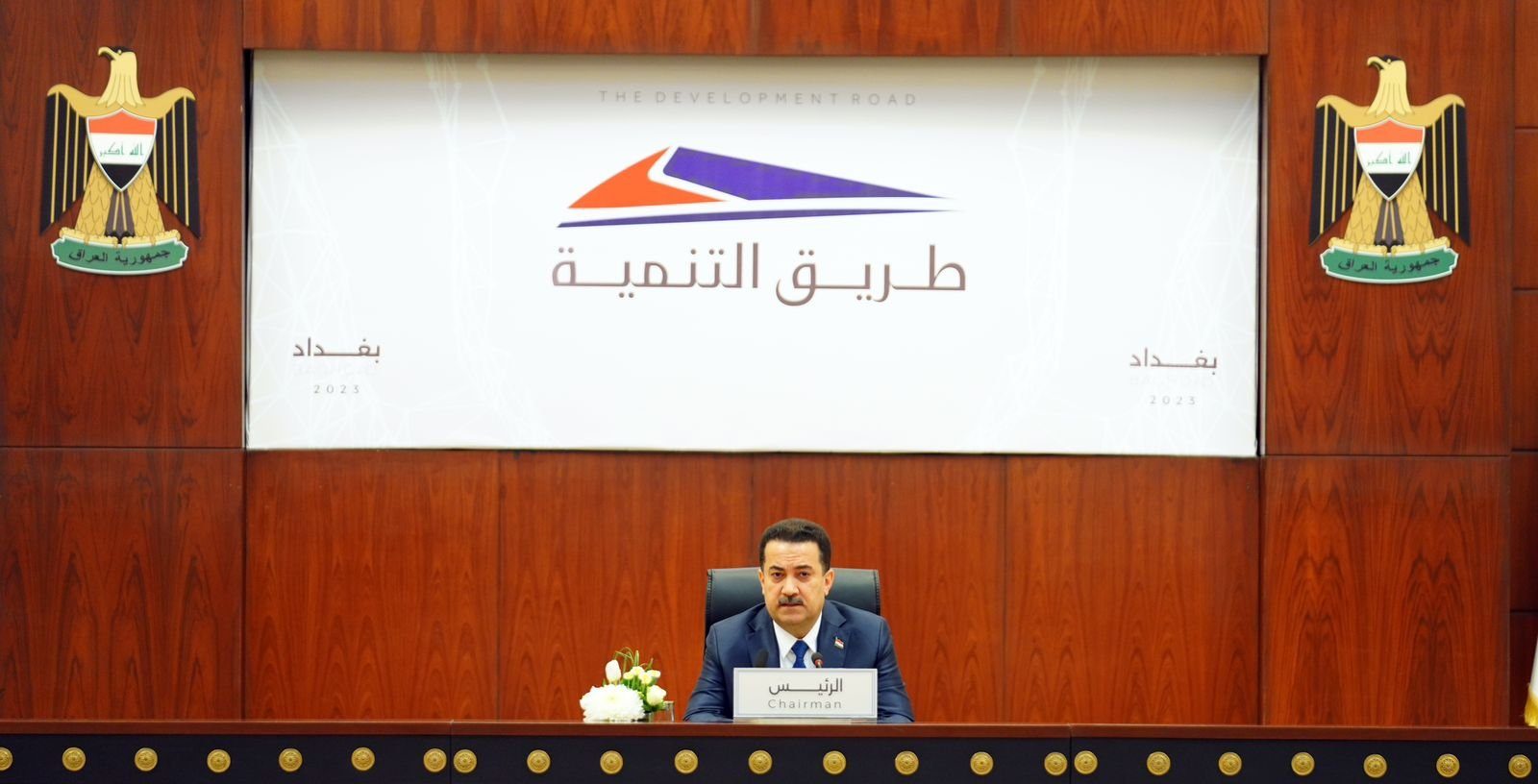If completed, the project would measure 1,200 kilometers and connect Grand Faw Port, south of Iraq, to the north of the Turkish border and Europe.
The Gulf Cooperation Council (GCC) will study Iraq’s “ambitious” $17 billion “Development Road Project” that would link the Middle East and Europe, Baghdad’s state news agency (INA) reported on Saturday.
Speaking to INA, Qatar’s Undersecretary of the Ministry of Transport Hamad Issa confirmed that the regional bloc will look into the project that was proposed on the same day by Iraq’s Prime Minister Muhammad Al-Sudani.
Other countries that attended the conference include Jordan, Kuwait, Oman, Saudi Arabia, Syria, Turkey and the United Arab Emirates.
“This project has a positive, economic and environmental sustainable effect in the region,” Issa said, adding that the GCC “will study” the necessary mechanisms.
Sudani announced the proposed project during the Development Road Conference, describing it as “an ambitious plan to reshape the economy by utilising strategic economic levers for sustainable growth and prosperity.”
If completed, the project would measure 1,200 kilometers and connect Grand Faw Port, south of Iraq, to the north of the Turkish border and Europe through interconnected railways and highways.
“Qatar’s participation in this conference came to get acquainted of this project, the possibility of implementing it in the next stage, and what are the objectives of it,” Issa noted.
Further outlining the project’s potential benefits, Sudani said that it would help Iraq and its neighbours while serving “as a pillar for a sustainable non-oil economy”.
“Railways and highways will enable efficient transportation of goods, while the employment opportunities generated by these projects will foster regional integration, stability, and resilience in the face of challenges,” Sudani said.
The Grand Faw Port would be developed in addition to a “smart industrial city”, though Sudani did not disclose details on the financing of the project, which he said could be completed within “three-to-five years”.
The project would turn Iraq into a key trade hub while providing it with a much-needed economic boost. The oil sector in Baghdad makes up 90% of its revenue with exports accounting to more than 55% of its gross domestic product.
Historically, Iraq was known as “the land between two rivers” as it connected the Tigris and the Euphrates.
For years, especially after the deadly United States invasion of 2003, Iraq has struggled to rebuild the country. The reconstruction of Iraq cost $213 billion.
Meanwhile, Iraq ranks among the most corrupt countries in the world, as per the Transparency International index. Currently it ranks 157 out of 180 countries.
Fighting corruption has been among the key demands by millions of Iraqis who flocked to the streets during the 2019 protests. Civilians also demonstrated against unemployment and a lack of basic services.







